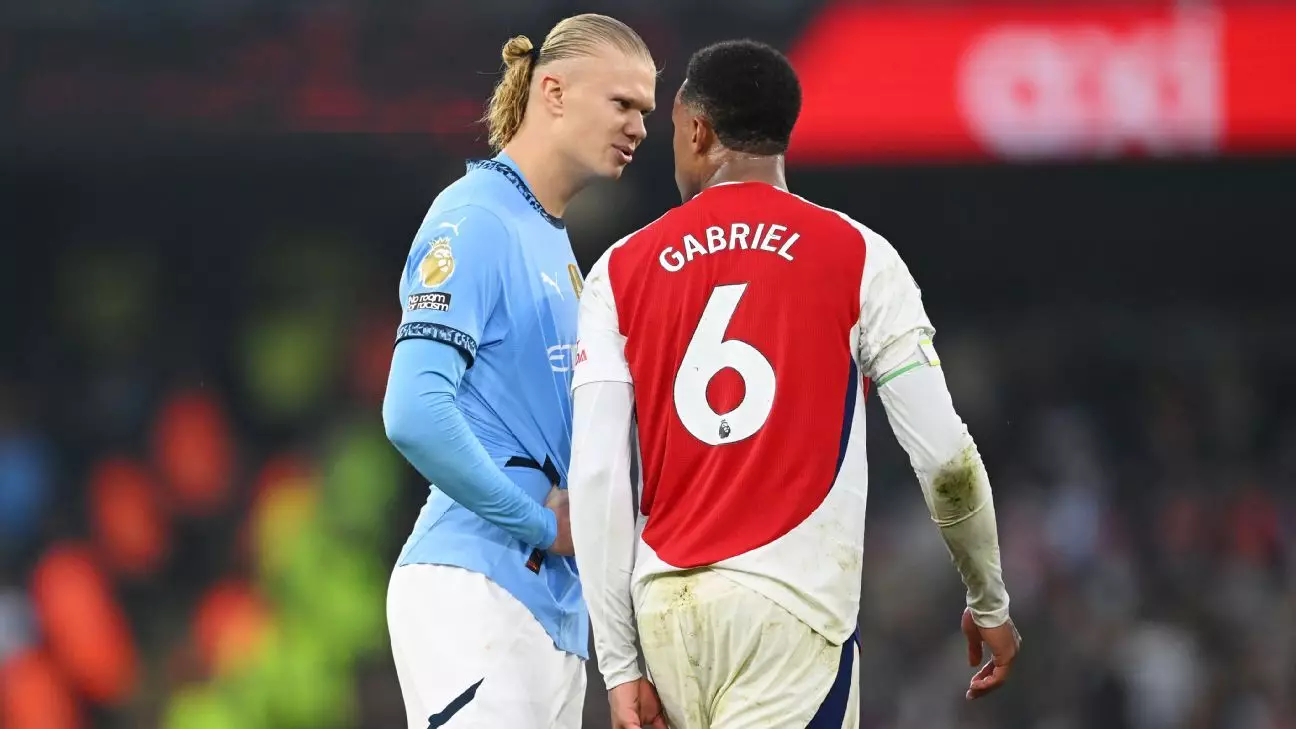In a dramatic encounter between Manchester City and Arsenal that ended in a 2-2 draw, Erling Haaland found himself at the center of controversy for throwing a ball at Arsenal defender Gabriel Magalhães. Although the act was captured by television cameras, it ultimately did not lead to any disciplinary action from the Football Association (FA). The incident unfolded in the closing moments of the game at the Etihad Stadium, after John Stones scored a late equalizer to bring City level. While on-field referee Michael Oliver missed the occurrence, video assistant referee John Brooks reviewed the footage and determined that it did not meet the threshold for violent conduct.
Following the match, tensions ran high on the pitch. Haaland engaged in a heated confrontation with Arsenal manager Mikel Arteta and striker Gabriel Jesus, condemning what he perceived as time-wasting tactics employed by the visiting team. City defender Manuel Akanji expressed his frustration regarding the Arsenal players’ behavior during the match. He noted that the frequent falls and delays made it difficult for City to maintain rhythm. Akanji’s comments echo a broader frustration among teams when it comes to managing the game effectively with fluctuating levels of officiating.
Haaland’s remarks towards Arteta, where he told the manager to “stay humble,” were particularly telling. The Norwegian striker seemingly wanted to underscore the emotional weight of the match, which was exacerbated by Arsenal’s tactics in the closing stages. This public exhortation reveals an ongoing narrative in football: respect and humility after high-stakes encounters can amplify rivalries and add layers to player interactions post-match. However, Arteta’s silence in response raised questions about leadership dynamics, particularly amid high tension.
Looking ahead, Manchester City faces potential challenges as they prepare for their Carabao Cup match against Watford. With key player Kevin De Bruyne sidelined due to a thigh injury, manager Pep Guardiola may have to consider a different lineup than usual. The timing of the cup match, just 48 hours after the Arsenal clash, complicates squad management further. Guardiola indicated that De Bruyne’s injury is not believed to be serious, but the midfielder’s absence will undoubtedly be felt by the team.
In this phase of the season, maintaining fitness levels and morale within the squad will be essential for Manchester City as they pursue success across multiple competitions. The catalytic nature of Haaland’s outburst, while perhaps seen as emotional in the heat of competition, may also reflect the increasing pressures players face in today’s high-stakes environment.
This incident involving Haaland sheds light on the broader context of player conduct and the standards of officiating in football. The FA’s decision not to act suggests a troubling leniency that may influence player behavior both on and off the pitch. As rivalries intensify and competitions tighten, the implications of such actions can reverberate across seasons. It raises the question of whether stricter measures should be implemented to curb unsportsmanlike conduct, ensuring that match integrity is preserved for the benefit of all involved—players, officials, and fans alike.
While the immediate on-field controversies may fade, the underlying dynamics of competition, respect, and accountability will persist, shaping future confrontations in the world of football.

Leave a Reply